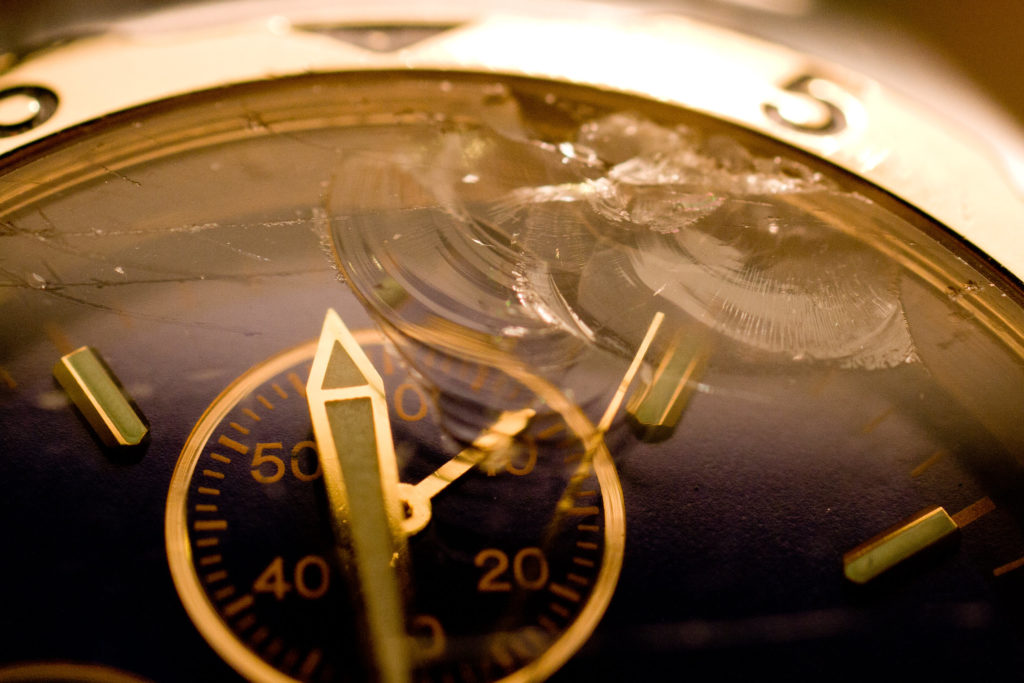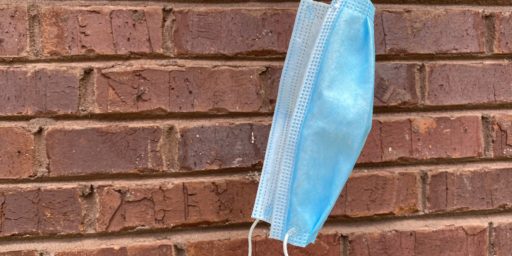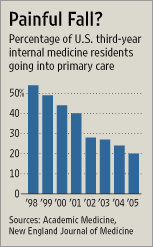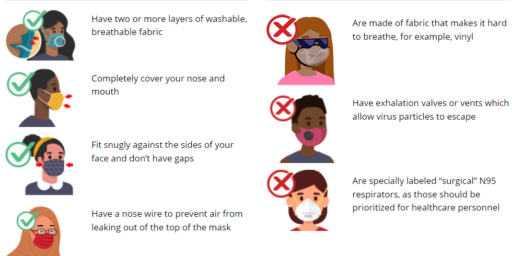No, We’re Not Living in the 19th Century
The pandemic is massively more livable given modern technology.

Checking in on memeorandum this morning, I stumbled on Molly Jong-Fast‘s Vogue feature claiming “We Are All Living in the 19th Century Right Now.” It was, shall we say, less than persuasive.
It’s not the 19th century. It just feels like it.
It’s been a hundred and two years since the last major pandemic swept America: the 1918 flu pandemic (known as the Spanish flu because Spain was the only country to accurately report it). A lot has changed in a hundred and two years but a look at social media (which they didn’t have a hundred and two years ago) might suggest that some people are getting through their coronavirus lockdown in much the same way people got through time at home during the Spanish flu.
No, no we’re not. And, by the way, 1918 was nearly a fifth of the way into the 20th century.
Yes, we may have the internet now, but we also have copious amounts of old-timey activities that are being re-embraced. Suddenly everyone’s doing many of the same things people did in 1918, returning to the traditions and activities that might have occupied their parents or grandparents in the waning days of the previous century. We may not be in the 1890s, but at times it certainly feels like it.
Once again, 1918 was not the 1890s. It was anywhere from 19 to 28 years later. Given the speed of change in the Second Industrial Revolution, that’s a rather significant difference.
This may have all started naturally or as naturally as a return to a previous lifetime can start. Americans on the frontlines needed personal protective gear, doctors and nurses made desperate tearful appeals on television, so people got to work making masks.
So, television was invented in 1927. It didn’t come into widespread use until the 1950s. So, the fact that doctors were making appeals on television is very much different from the 1918 pandemic which, again, was in the fucking 20th century, not the 19th.
First for medical professionals, who probably would have preferred N95 masks, and then later for ourselves as New York City mayor Bill de Blasio implored New Yorkers to make their own masks to avoid buying up precious supplies of medical ones. “You can create your own version, you can be creative, you be creative and put your own decoration,” he declared. “That’s what we want you to do. Something homemade, not something professional.”
N95 masks didn’t exist in 1918. Doctors had only recently learned of the very existence of viruses.
And then there was the baking, which in itself started somewhat out of necessity. After all, a Fresh Direct delivery spot is vanishingly rare, it’s almost impossible to get Instacart and a trip to the market feels like a game of Russian roulette.
But there’s baking and then there’s baking. If only I had a dollar for everything internet discourse I’ve seen on the creating of bread! Yesterday, the phrase “sourdough starter” was trending on Twitter.
So, Fresh Direct delivery, Instacart, the internet, and Twitter didn’t exist. People baked in 1918 because they were desperate to feed their families, not because they were bored.
But even the other actives we are doing during this quarantine have a distinct whiff of nostalgia and a longing for the past. There are families gathering around old-fashioned puzzles and board games, and a renewed obsession with gardening and flowers. A friend of a friend even took up basket weaving. Another took to needlepoint for the first time, using kits she found on Etsy. My eldest son is taking banjo lessons from his grandfather via Skype.
So, people never stopped playing board games, putting together puzzles, gardening, basket weaving, or even playing the banjo. But even the “old-fashioned” board games I played as a kid, like Monopoly, were invented well after the 1918 pandemic. And, again, it’s a very different thing to garden and basket-weave as a past-time versus as a necessity.
Deep into the post, we finally get to an actually-interesting historical connection:
But why, why have we all gotten so old-fashioned.? Is it out of necessary? Or is it something deeper? I live in New York City, where about 700 people died in the last twenty-four hours, and 700 the day before. There’s a heaviness here, as ambulances roll down empty avenues. What if connecting to the old ways is a way to find comfort, to connect with humanity of previous centuries?
We have no modern playbook for living through a plague but we do have a Victorian playbook for it. They didn’t have a pandemic in the 1965 but they did in the 1665 (the great plague of London). 2017 didn’t have a pandemic but 1817 was ravaged by Cholera. What if connecting with our historic past selves is a way to connect with the collective unconscious? What if we are trying to find the permanence of humanity? Maybe we won’t live forever, but humanity will continue. Maybe baking and sewing and making our own hand sanitizer are ways to connect with our past and, in some ways, even our future?
Mostly, I think, it’s a way to avoid going stir crazy. But, yes, the crisis seems to be kindling a desire for community and connectedness that our ordinary lives tend to gloss over.
Still, the fact that we can connect with one another via blogs, Twitter, Facebook, Instagram, Zoom, Facetime — or, hell, the telephone— is a glorious gift that our 1918 forebears didn’t have. The ability to get pretty much anything one desires delivered to the house via Amazon Prime or DoorDash is a wonder that most of us, until this crisis, simply took for granted.
I very much wish we weren’t going through this test. But I’m very happy, indeed, that it’s happening in 2020 and not 1920, let alone 1820 or 1620.






Well, now, if the Flintsones had TV long before the invention of agriculture or writing… ;P
Seriously, radio wasn’t widespread in 1918.
a better argument is that some people are, if not living, at least stuck with thinking predating the 17th century, the dawn of the scientific revolution. That is to say, they ignore the science(*), and fall for superstition, prejudice, ignorance, and blind faith.
@Kathy:
Or as Tom Cotton likes to say, “Common sense”.
I agree with all you said on this. However, it seems to me that the key difference from 1918 is not technology, but rather social policy. In 1918, for the 2/3 of people who did not live on farms, if you self-quarantined or practiced social distancing, you lost your job and your family starved. There were no safety nets to allow any but the fabulously wealthy to simply not work for two or three weeks. Such charities as existed would require you to mix with lots of other desperate people, and could not handle a fraction of the demand that would have been placed on them.
We have suppressed our national memory of what life was like for ordinary people in 1918. The Battle of Matewan hadn’t happened yet; Bolshevism was flourishing for a reason. If a large-scale lockdown had been ordered in 1918, there would have been widespread insurrection.
@DrDaveT: there were lockdowns, although I’m not sure how widespread they were. I’ve seen articles comparing the death tolls in 1918 in cities that instituted lockdowns (such as St. Louis) versus those that didn’t (such as Philadelphia).
Generally, I like Molly’s writing, but this was a particularly weak piece. She had a point she wanted to make and sought and failed to create a narrative leading up to it.
Everyone who writes, knows that there are days when nothing clicks and a forced result gets binned, but writers on a deadline don’t have that luxury and occasionally crap makes it into print. I’m willing to bet that if Molly ever publishes a collection of selected writings, this won’t be included.
@Sleeping Dog:
There’s a saying in the newspaper/magazine biz: “Go with what you’ve got.”
@Sleeping Dog: @CSK: Yes, that’s a fair point. But this wasn’t a blog post dashed off between conducting an Easter egg hunt and preparing Easter breakfast—as this was—but a piece in a major national magazine that somehow got through an editor. I disagree with the analysis at the end but it’s a least a worthwhile point. Not knowing what century 1918 was in is just bizarre: I knew that in sixth grade.
@Kathy:
<a href="https://www.thisamericanlife.org/345/ties-that-bind/act-one"
@Kathy:
Editing links on the phone can be finicky.
@James Joyner:
And don’t overlook the fact that Jong-Fast is the daughter of two very famous writers. Vogue is paying for her name much less than her work. If I’d written the identical piece, Vogue would have rejected it without reading it.
@Kathy:..and blind faith
For Easter…Presence of the Lord
So much snark and seeming anger over some piece of pseudo-nostalgic fluff. Wa.
@Just nutha ignint cracker: Indeed. I think that’s the first time I’ve seen our host use the f-word in an actual post! I have to say, though, the intensity of the reaction was pretty amusing.
Mail delivery, prescription delivery, and grocery delivery are not doing too well here in northeastern Mass. I ordered a prescription five days ago and it still hasn’t arrived.
@DrDaveT: in fact, this article references the St. Louis vs Philadelphia outcomes in 2018, as it describes a current real-life comparison: Kentucky vs Tennessee.
https://www.google.com/amp/s/www.buzzfeednews.com/amphtml/danvergano/coronavirus-kentucky-tennessee-social-distancing
@CSK:..Mail delivery, prescription delivery, and grocery delivery are not doing too well…
@CSK:
It will be worse when the Post Office enters bankruptcy later this year.
@Mister Bluster: @Sleeping Dog:
Swell.
I’m wondering if 2013 would have been better, or whether the Republican desire to spite Obama would have ensured that it would have turned out any better. 2006, assuming Bush was lazy enough to not interfere?
@Gustopher:
Brownie would have gotten right on it.
@Gustopher:
But the interesting thing was that Bush apparently did believe we should be prepared for a pandemic, having read a book about the 1918 flu, and did insist on making preparations. I read several stories about this recently, at abcnews.go.com and politico.com.
@CSK: I don’t see why anyone should be surprised that Bush was wiser and more empathetic than Trump. An earthworm can jump that bar.
Best historical era ever for long-term self-isolation. No question. This pandemic should be bringing us together, as it is doing in the UK. It’s not, because large segments of our population suffer from a mental illness, delusional disorder.
Subsets:
In the UK 53% identify as ‘no religion.
In the US the number is 20-25%.
There is no unity, cannot be unity, between sane and crazy. To this extent we are living in the 19th century, circa 1860.
@Just nutha ignint cracker: @R.Dave: Ha. I guess I was just annoyed that someone who doesn’t understand how centuries work or seemingly have the foggiest understanding of grade school social studies is getting published in national outlets.
@James Joyner: Again, getting published at least partially on the basis of DNA. As someone else noted earlier, if I had written that, I wouldn’t have even gotten a thank you for your submission letter.
I didn’t bother reading the article, but I’m guessing she was just trying to evoke a particular era, and “20th century” doesn’t quite cut it, including the ’90s and all. It’s unfortunate that the 1918 flu figured so prominently in the piece, and yeah, it’d irritate me a bit as I was reading it, too.
@Monala:
Thanks! I appreciate the links.
@reid:
Too many people remember the 20th century too well, including many young people. Besides, much revolutionary progress took place in the 20th century, both good and bad: industrialized warfare, antibiotics, biotechnology, powered flight, cars and trucks, electronics, computers, movies, television,space flight, etc.
Much progress took place in the XIX century as well, but it was all superseded by the progress in the XX. Consider such progress includes simple stuff like the cotton gin, and very basic stuff like interchangeable parts. None of which demeans achievements like the railroad, electric light, recorded sound, the telegraph, telephone, radio, photography, etc.
I very much wish I had toilet paper. I have not seen a roll for sale for more than a month. I’ve brought this up repeatedly. Supply chain failure to stock grocery stores to demand is a turning point.
Your assertion ignores the fact that our supply chains fail entirely if too many of us are sick.
We could be fully 19th century on groceries in a month or two. Perhaps worse.
If we cannot stock grocery stores with enough calories and keep them open, we are truly fucked.